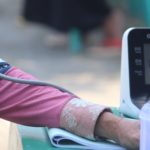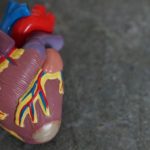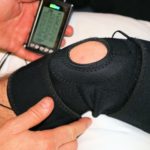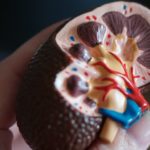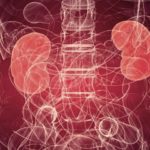Why do people faint?
Fainting is a transient loss of consciousness. Let’s find out why do people faint. This occurs suddenly when a person falls suddenly from a standing position. The fall occurs due to the sudden inability to maintain the postural tone of skeletal muscles. Though the consciousness is regained soon and spontaneously, there is always a risk of sustaining injury due to a fall. This condition is usually a simple episode and is not associated with any serious underlying illness.
How does fainting occur?
Fainting is fairly common and many people suffer at least one episode during their lifetime. It occurs due to sudden reduction of blood supply to the brain, as a result of which there is a lack of delivery of glucose. The main source of energy for brain cells is glucose. Since the brain tissue is unable to store glucose, a continuous supply is essential to maintain the metabolic requirement of brain cells. That is why a reduction in the blood supply to the brain for a few seconds interrupts the metabolism of brain cells resulting in fainting. But soon after falling, the blood flow to the brain is restored as it is easier for the blood to reach the brain when it is at the level of the heart which pumps blood. Resumption of blood supply and glucose results in the reawakening of the patient.
Causes of fainting
An adequate blood flow in the brain is regulated so as to the main perfusion of blood. This is called cerebral autoregulation. This depends on reflex and feedback system, cardiac output, the resistance of peripheral vessels, the volume of circulating blood, and metabolic status. Any disturbance in the complex interplay of these factors may result in fainting.
The cardiac output of blood is reduced due to many disorders. These include cardiac failure, outflow obstruction, abnormal rhythm, and conduction disorders. In patients with longstanding diabetes, there is a risk of autonomic neuropathy and postural hypotension. This vasomotor instability may result in fainting attacks. Hypovolemia or reduction in circulating volume may result because of diminished intake or excessive loss of fluids. This condition may be drug-induced. In patients with severe reduction in blood sugar, sodium and oxygen levels or raised levels of carbon dioxide in circulation may result in fainting.
Is there a risk of death?
Usually, this condition is benign and is followed by complete recovery though minor injuries to the face or scalp may occur. Minor lacerations are sutured. If there is a suspicion of head injury, a period of observation is required. If there is any doubt, a CT scan is done to rule out any brain injury or collection of blood.
People who have underlying heart disease or diabetes are at an increased risk of complications or death. These patients are prone to recurrent episodes of fainting, skin lacerations, fractures of long bones of upper or lower limbs, and head injury. A road traffic accident is the worst complication as a result of fainting while driving. This episode may pose a health hazard to others.
What to do in such an event?
If the person does not recover spontaneously, an ambulance should be called for immediately. Some of these patients require emergency treatment. This treatment may be as simple as giving glucose orally or intravenously in patients with hypoglycemia. Others may require special treatment as per the cause. This includes correction of electrolytes, oxygen inhalation, correction of cardiac arrhythmias or other heart problems. Direct current shock may also be required in cardiac arrest.
One should be aware of those patients with past history of similar episodes and help in the timely evacuation of these patients to a nearby hospital or any medical facility.






